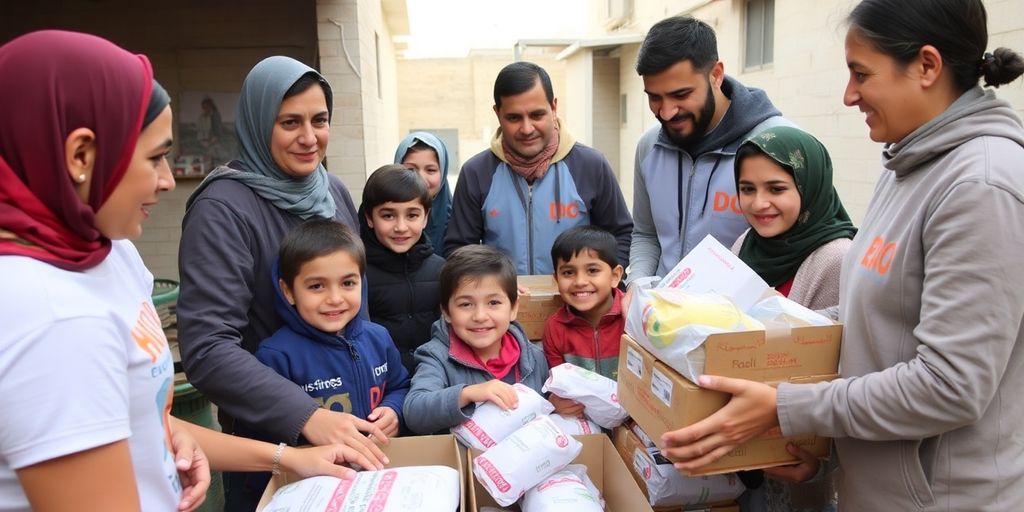Turkey has taken significant steps to bolster humanitarian aid for Syrians wishing to return home. On February 14, 2025, a protocol was signed between the Turkish Red Crescent and the Gaziantep Metropolitan Municipality, aimed at facilitating safe and dignified returns for Syrian refugees. This initiative comes as a response to the growing number of Syrians expressing a desire to return to their homeland after years of displacement.
Key Takeaways
- Protocol Signing: The Turkish Red Crescent and Gaziantep signed a humanitarian aid protocol to support returning Syrians.
- Growing Desire to Return: Approximately 30% of Syrian refugees wish to return to Syria soon.
- Support Services: The initiative aims to extend support services further into Syria, focusing on education, disaster response, and social services.
- Historical Context: The program is inspired by the "Ansar-Muhajir" relationship, emphasizing hospitality towards migrants.
Background of the Initiative
The signing ceremony took place in Gaziantep, where Turkish Red Crescent President Fatma Meriç Yılmaz highlighted the new phase in Syria and Turkey’s commitment to assist those wishing to return. Yılmaz stated, "We have done our best to host our Syrian brothers and sisters for the past 13 years. Now, we have come together to support those who want to return in a safe, voluntary, and dignified manner."
Services Offered
The protocol outlines various services to be provided to returning Syrians, including:
- Education: Establishing educational facilities to support children and young adults.
- Disaster Response: Coordinating efforts for emergency assistance in case of natural disasters.
- Social Services: Providing social support to vulnerable groups, including women and children.
- Resource Management: Efficient management of resources to ensure sustainability.
- Waste Recycling: Initiatives to promote environmental sustainability in returning areas.
Infrastructure Development
Gaziantep Mayor Fatma Şahin emphasized the importance of infrastructure in facilitating returns. The municipality has already undertaken significant efforts, including:
- Clearing 80 truckloads of waste in Jarablus.
- Restoring essential services such as electricity and water supply.
- Constructing a helipad to support safe return processes.
Currently, around 200,000 people reside in Jarablus, and the municipality aims to replicate this model in Aleppo, another city in Syria.
Cultural Significance
The initiative draws inspiration from the historical "Ansar-Muhajir" relationship, which refers to the bond between the early Muslims who migrated to Medina and the residents who welcomed them. This concept is now used to describe the support provided by host communities to migrants and refugees during crises.
Conclusion
Turkey’s enhanced humanitarian aid for returning Syrians marks a significant step towards addressing the needs of displaced individuals. By focusing on safe and dignified returns, the initiative not only aims to support those wishing to go home but also fosters a sense of community and solidarity between the Turkish people and Syrian refugees. As the situation in Syria evolves, these efforts will be crucial in rebuilding lives and communities.






